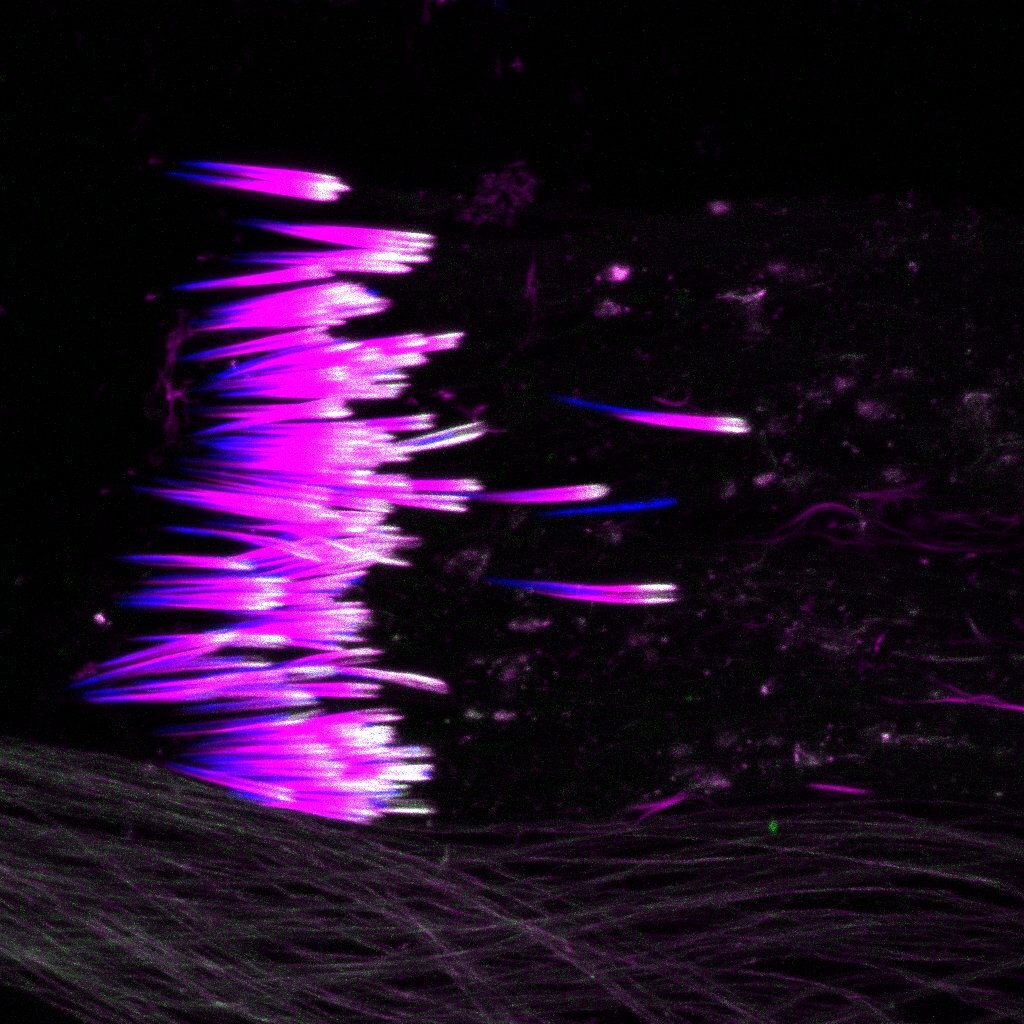What are the causes and consequences of cytoskeletal diversification?
About our science
What do we study?
Cytoskeletal proteins perform many fundamental roles, including cell motility, cargo transport and cell division. Given their essentiality, cytoskeletal proteins are commonly thought to be conserved throughout eukaryotic evolution, yet we have found many cytoskeletal genes are rapidly evolving even between closely related species and adapted novel biological functions. We want to know what drives this genetic innovation and what are the biological consequences.
Why study this?
Although there are many divergent cytoskeletal proteins across phyla, we know very little about them! They have been largely ignored most likely due to their lack of deep evolutionary roots. A few have been shown to play important roles in fertility and development in flies and humans, and a subset are even misexpressed in cancer with their expression consistently correlating with reduced survival time. The human health implications are a big motivation for focusing on these proteins, but they are also just fun to study. They’re beautiful to image and surprise us with every experiment!
What lab techniques do we use?
We take an interdisciplinary approach. Our day-to-day work includes evolutionary analyses, tissue culture, microscopy, fly genetics, biochemistry and structural biology to ultimately understand the causes and consequences of cytoskeletal diversification across phyla.
Current areas of interest for studying divergent cytoskeletal proteins:

Join the lab!
Positions for enthusiastic PhD students, postdoctoral fellows, staff scientists and technicians are available. See the Join page for more information.














